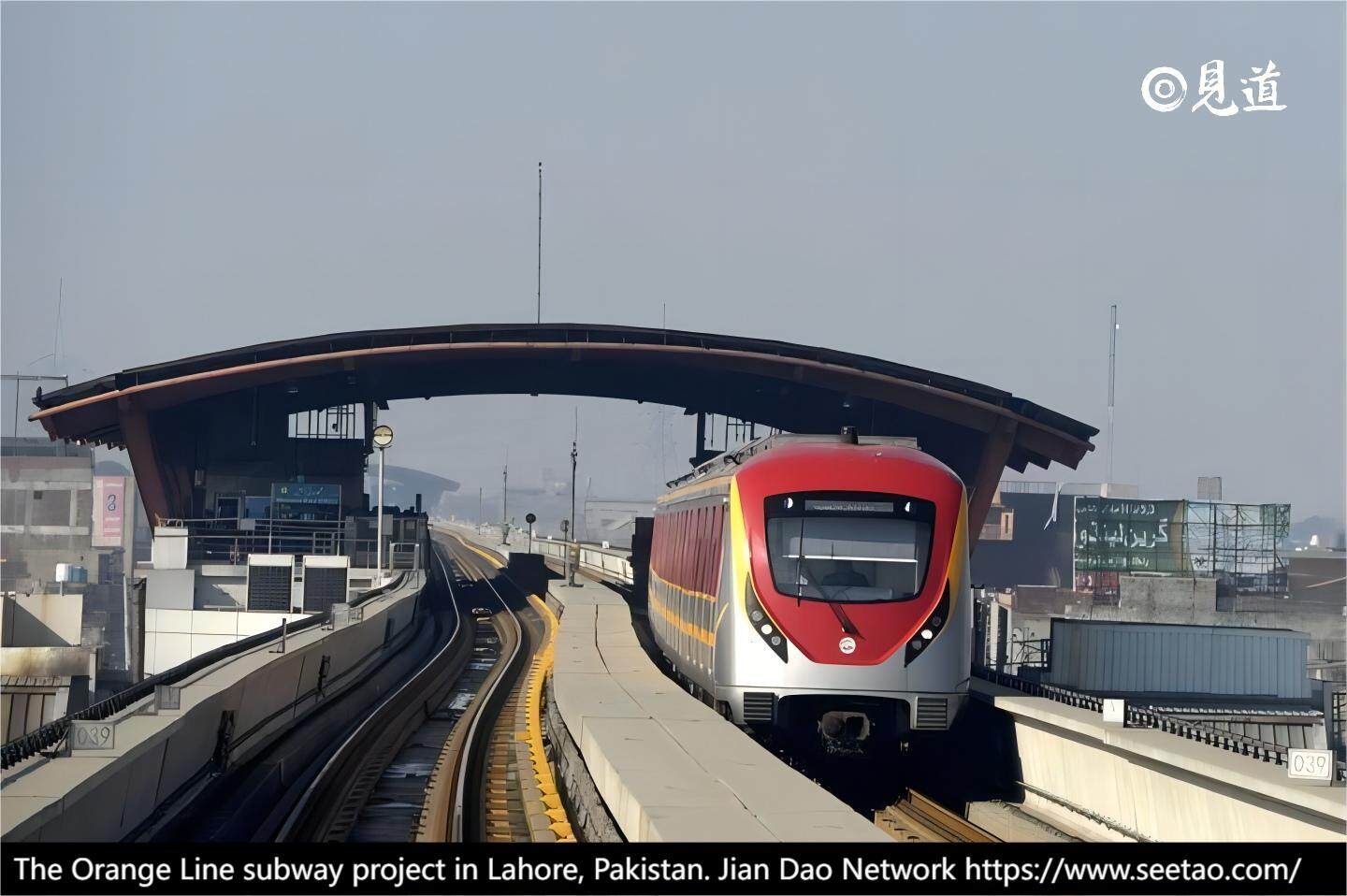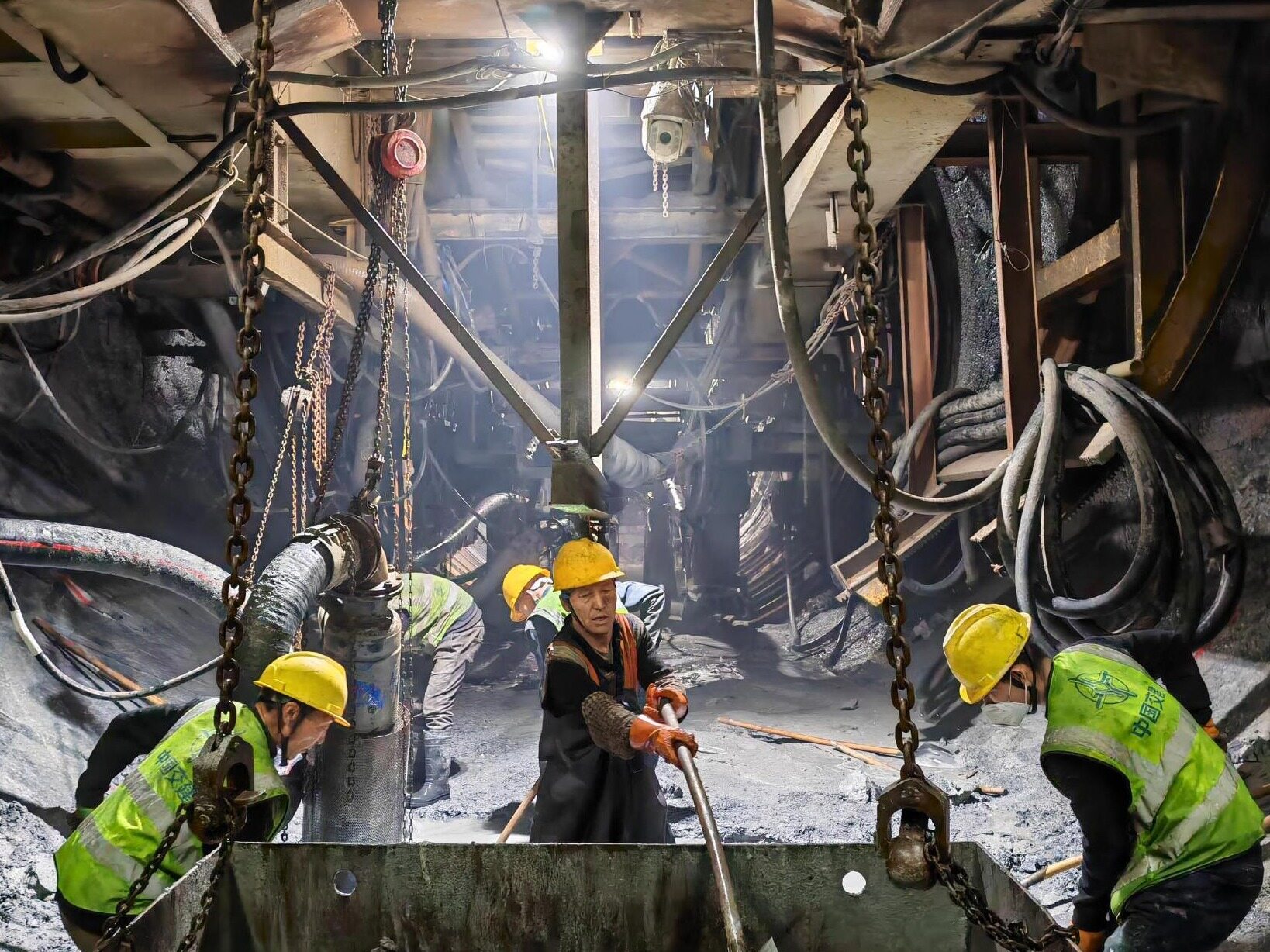- This showcases the close cooperation between China and Pakistan in the field of infrastructure construction

The first subway in Pakistan, the Orange Line, is an iconic project with a total length of 27 kilometers and 26 stations. This major project was undertaken by a Chinese company and successfully put into operation in October 2020.

Kanwal Ali, President of the Punjab Public Transport Authority in Pakistan, said at the event that the cultural integration between Pakistan and China has deepened mutual understanding and friendship. From the ancient Silk Road to the current path of common prosperity, culture has always played an important role as a link, closely connecting the two countries and jointly promoting regional prosperity and development.
According to Tan Zidong, Executive Vice General Manager of the Orange Line Metro Operation and Maintenance Project, the daily passenger flow of the Orange Line Metro has increased by 80% in 2023 compared to 2022, reaching 250000 people, and can even reach 270000 people during peak hours. Since the opening and operation of this subway line, convenient transportation services have been provided to a total of 140 million passengers.
Fatima, who is studying in Lahore, shared with reporters that she now chooses to take the Orange Line subway every day. Compared to using other modes of transportation before, she can save a lot of time. Previously, it took about 40 minutes to get from home to school, but now it only takes 15 minutes to easily get there by taking the Orange Line subway. This change has brought great convenience to her daily commuting.
The Orange Line subway not only ensures convenient travel for Lahore citizens, but also exports Chinese standards, technology, and equipment overseas. "We refer to China's rich experience in urban rail transit and combine it with local characteristics to carry out highly localized operation and maintenance. The Orange Line is a full industry chain output in China's rail transit field," said Tan Zidong.
Tan Zidong told reporters that the Chinese and Pakistani employees of the Orange Line project have jointly compiled 168 sets of fully English operation and maintenance regulations and standard operating manuals, which have been registered with the Pakistan Intellectual Property Organization. This proves that the standardized and localized operation system created by the Chinese team has been recognized. "We can replicate and apply this management system in future urban rail transit projects in Pakistan," said Tan Zidong.

The Orange Line subway project conducted six batches of train driver training, and Okasha Anis was one of the beneficiaries. After three years of hard work in the project, he was successfully promoted to captain of the driver with outstanding performance. In an interview with reporters, he shared his training experience and stated that through training, he is not only able to drive trains safely, on time, and smoothly, but also proficient in handling various faults during train operation, and guiding passengers to ride safely and civilized.
"I have learned a lot from my Chinese colleagues, who have taught me all the knowledge about train operation. I have driven subway trains according to standards for 3 years without any operational errors," said Anis. Keywords: the Belt and Road news, the Belt and Road project, overseas project.
"In Lahore, a millennium old city, we have been committed to building the Orange Line into a grounded and popular project, and continue to work hard to bring economic development and industrial upgrading to Pakistan." Tan Zidong said. (This article is from the official website of Jiandao: www.seetao. com. Reproduction without permission is not allowed, otherwise it will be punished. Please indicate Jiandao's website and the original link when reprinting.) Jiandao's mechanical column editor/Zhou Yingwen
Comment
 Praise
Praise
 Collect
Collect
 Comment
Comment
 Search
Search














Write something~